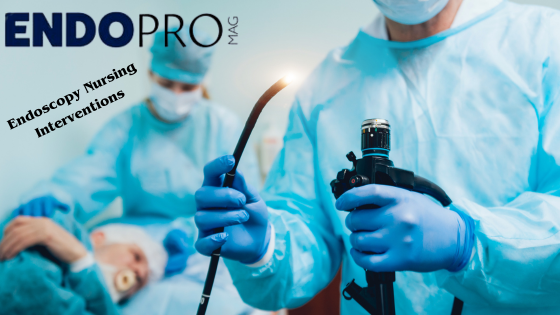Endoscopy is a vital medical procedure that allows healthcare professionals to visualize the internal organs and structures of the body. The role of endoscopy nursing interventions is crucial, as nurses provide care and support to patients before, during, and after the procedure. Endopromag is committed to advancing knowledge in this area, ensuring that healthcare providers understand the essential nursing interventions required for successful endoscopy procedures.
What is Endoscopy?
Endoscopy is a minimally invasive procedure that uses a flexible tube with a light and camera attached, called an endoscope, to examine the gastrointestinal tract or other internal organs. It can be used for diagnostic purposes, such as identifying ulcers or tumors, and therapeutic interventions, such as removing polyps or performing biopsies.
The Importance of Endoscopy Nursing Interventions
Endoscopy nursing interventions encompass a wide range of activities aimed at ensuring patient safety, comfort, and optimal outcomes. Nurses play a pivotal role in the endoscopy process, and their interventions can significantly influence the overall success of the procedure. These interventions can be categorized into three main phases: pre-procedure, intra-procedure, and post-procedure.
Pre-Procedure Interventions
1. Patient Education
One of the primary responsibilities of nurses in the pre-procedure phase is to educate patients about the endoscopy process. This includes explaining the purpose of the procedure, what to expect, and how to prepare. Nurses should provide clear information about dietary restrictions, medication adjustments, and the need for a responsible adult to accompany the patient post-procedure.
2. Assessing Patient History
Gathering a comprehensive patient history is essential for identifying potential risks and contraindications. Nurses should assess medical history, including previous surgeries, allergies, and current medications. Understanding the patient’s overall health status allows for better planning and risk assessment, ensuring safe and effective interventions.
3. Preparing the Patient
Nurses must prepare patients physically and emotionally for the procedure. This may involve providing instructions on fasting, administering pre-procedure medications (such as sedatives), and ensuring patients are comfortable. Establishing rapport and addressing any concerns can help alleviate anxiety and enhance the patient’s experience.
Intra-Procedure Interventions
4. Monitoring Vital Signs
During the endoscopy procedure, nurses are responsible for continuously monitoring the patient’s vital signs, including heart rate, blood pressure, and oxygen saturation. This ongoing assessment is crucial for detecting any complications or adverse reactions to sedation or the procedure itself. Nurses must be trained to recognize early signs of distress and take appropriate action.
5. Assisting the Endoscopist
Nurses play a vital role in assisting the endoscopist during the procedure. This may include preparing and handling instruments, maintaining a sterile environment, and ensuring the availability of necessary supplies. A nurse’s ability to anticipate the needs of the endoscopist can significantly improve the efficiency of the procedure and enhance patient safety.
6. Providing Sedation and Pain Management
Many endoscopic procedures require sedation to ensure patient comfort. Nurses are responsible for administering sedation and monitoring its effects. This includes assessing the patient’s level of consciousness, responsiveness, and comfort. Effective pain management is essential, and nurses should be skilled in recognizing and addressing any discomfort the patient may experience during the procedure.
Post-Procedure Interventions
7. Monitoring Recovery
After the procedure, nurses continue to monitor the patient as they recover from sedation. This involves checking vital signs, assessing the patient’s level of consciousness, and ensuring they are stable before discharge. Nurses must be vigilant in recognizing any complications that may arise, such as bleeding or adverse reactions to sedation.
8. Providing Post-Procedure Instructions
Nurses play a key role in providing post-procedure instructions to patients and their families. This includes information about diet, activity restrictions, and potential side effects. Clear communication helps patients understand how to care for themselves after the procedure and recognize when to seek medical attention if needed.
9. Documentation
Accurate and thorough documentation is essential in endoscopy nursing. Nurses must record all relevant information, including pre-procedure assessments, sedation levels, intra-procedure findings, and post-procedure care. This documentation is vital for continuity of care and legal purposes, ensuring that all aspects of the patient’s experience are appropriately noted.
The Role of Technology in Endoscopy Nursing Interventions
The integration of technology in endoscopy procedures has significantly impacted nursing interventions. Advanced endoscopy equipment, electronic medical records, and telehealth options have enhanced the efficiency and safety of endoscopic care. Endopromag supports the use of cutting-edge technology to improve patient outcomes and streamline nursing interventions in the endoscopy setting.
Continuing Education and Professional Development
Given the complexities of endoscopic procedures, ongoing education and training are essential for nurses in this field. Endopromag is dedicated to providing resources and opportunities for nurses to enhance their skills and knowledge in endoscopy nursing interventions. This commitment to professional development ensures that nurses are well-prepared to deliver their patients the highest standard of care.
Conclusion
Endoscopy nursing interventions are vital for ensuring patient safety and comfort throughout the endoscopic process. From pre-procedure education to post-procedure monitoring, nurses play an essential role in the success of endoscopy procedures. With the support of organizations like Endopromag, healthcare professionals can continue to advance their skills and knowledge, ultimately improving patient outcomes in endoscopy care.
Whether you are a seasoned nurse or new to the field, understanding the importance of these interventions will enhance your practice and positively impact the lives of your patients. Embrace the opportunity to learn, grow, and excel in endoscopy nursing with Endopromag.


